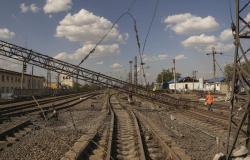“A triple shock”
So what is the reason for this poor health of municipal portfolios? In terms of explanations, international tensions and economic fluctuations have forced local authorities to spend more. More broadly, the cost of living has exploded over the last six years. This was followed by an indexation of salaries that has exhausted the coffers of localities. After sifting through their treasury, Belfius estimates, for example, that personnel costs have increased to encompass 42% of ordinary expenses. On average, the annual increase was 5.9%, with a notable peak of 11.2% in 2022-2023.
In their presentation, analysts point to a combination of factors.Personnel costs have suffered the triple shock of inflation, increased pension costs and the implementation of social agreements“, lists Arnaud Dessoy. Recording record inflation rates, Belgium exceeded – on no fewer than ten occasions – the pivot index during the municipal mandate (compared to only 4 between 2013 and 2018). Once this threshold was crossed, salaries and contributions were indexed by 2%… leading to an increase in expenditure.
Pensions, problem number one
Among the other causes of this increase in expenditure, Belfius also lists the ever-increasing burden of statutory staff pensions on municipal budgets.The prospects for the development of these charges are very worrying.“, points out Dimi Jottier, Public Finance analyst. By 2028, the accountability contribution should thus approach 175 million, compared to 100 million today. Enough to arouse serious fears among municipal officials. The local managers surveyed even consider that the pension bill will constitute the main issue of the next legislature. And this, not only in the concrete regions of the capital.”We have almost the same level of response in the other two regions.“, states Dimi Jottier.
The burden of pensions remains the number one problem for Walloon municipalities
To this must also be added the increase in funding for public social action centres (+8.4% per year).On average, municipalities spend 411 euros per inhabitant on their CPAS. However, these amounts are proportionally higher in the centre of the agglomeration (the first ring along the canal, and especially in Brussels City) than in more residential areas (second ring).“, the study says.
No miracle recipe
Faced with these increases at all levels, have the revenues allowed us to stay on course? From this point of view, the evolution of ordinary revenues has shown itself to be “quite volatile“, according to the study. Although the various crises have caused their growth to fluctuate, the revenues of the capital’s municipalities have nevertheless increased by an average of 5.5% per year over the entire legislature.
“The indexation mechanisms have played a favourable role here. The impact of inflation on costs is felt within the same year. But on revenues, it takes longer.“, specifies Arnaud Dessoy. Problem: this increase at the entrance remains below that observed at the exit, which widens the deficit.
An uncertain future?
So should we fear for the financial balance of the Brussels municipalities?The situation remains tense, but not yet dramatic.“, concedes Arnaud Dessoy. The reason is that the mattress available to municipalities is gradually turning into an uncomfortable bed base. The surplus has in fact gone from 200 million in 2019 to 58.5 million in 2024.”Ten municipalities are in deficit and only nine are in balance or in surplus for the financial year. Overall, five fail to meet the legal requirement of balance“, continues the specialist. The popular and industrial areas adjoining the banks of the canal (Anderlecht, Molenbeek, Forest, Schaerbeek), with low tax revenues, are suffering even more than their neighbours.
In short, the overall surplus of the Brussels localities represents barely 2% of the revenues while it is around 5.6 and 8% in the heart of the other two regions. The municipalities of the capital are therefore lagging behind and the need for reforms seems glaring. It remains for the next mayors and scabins to respond to this call the day after the elections.






